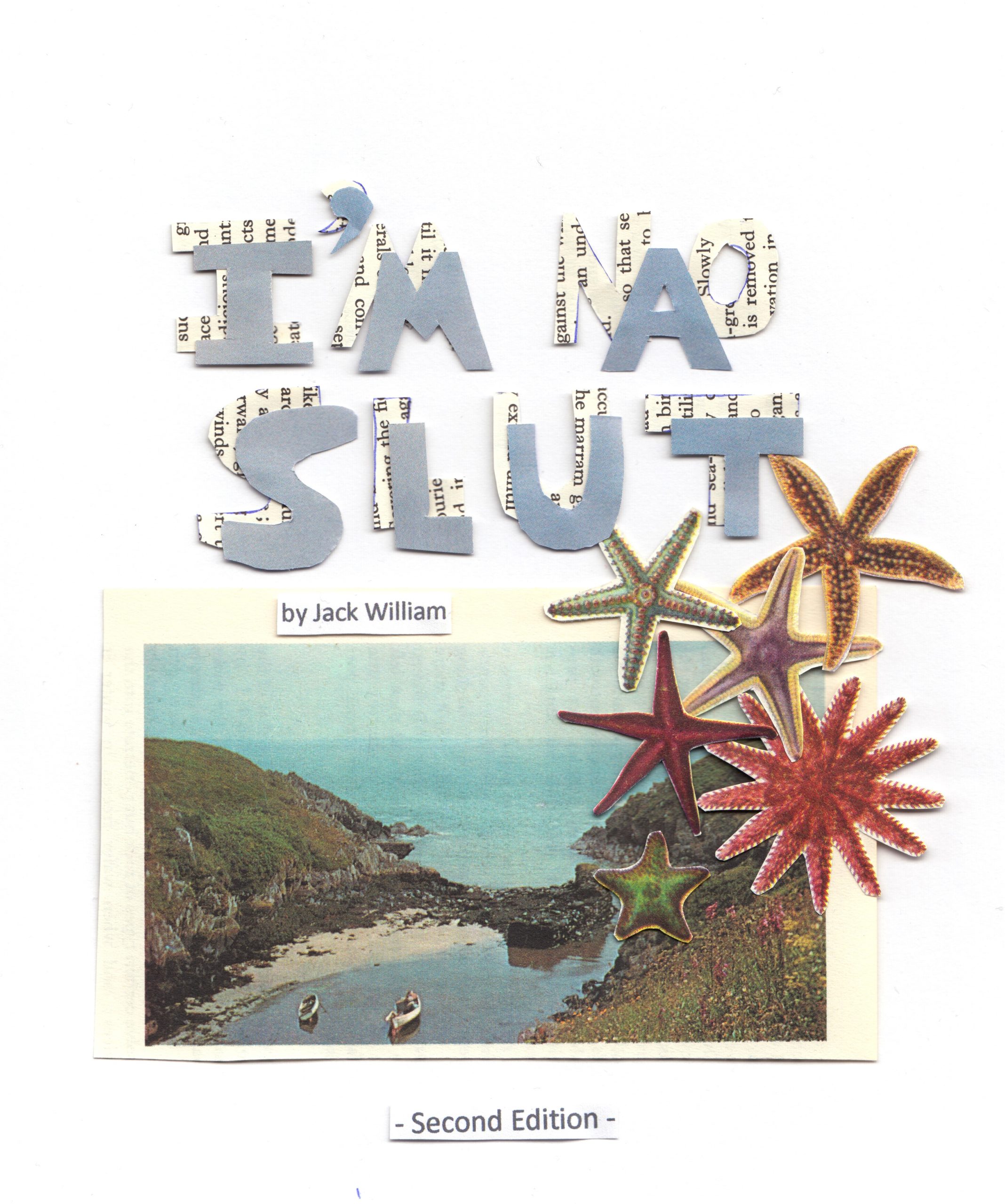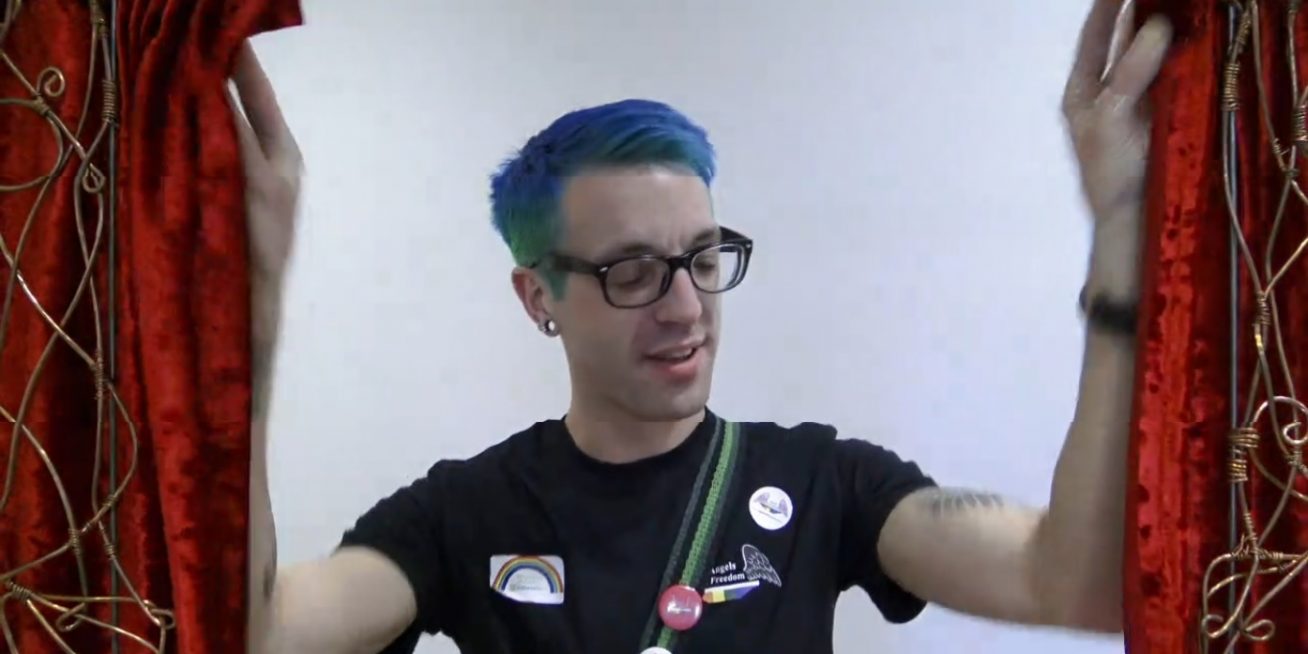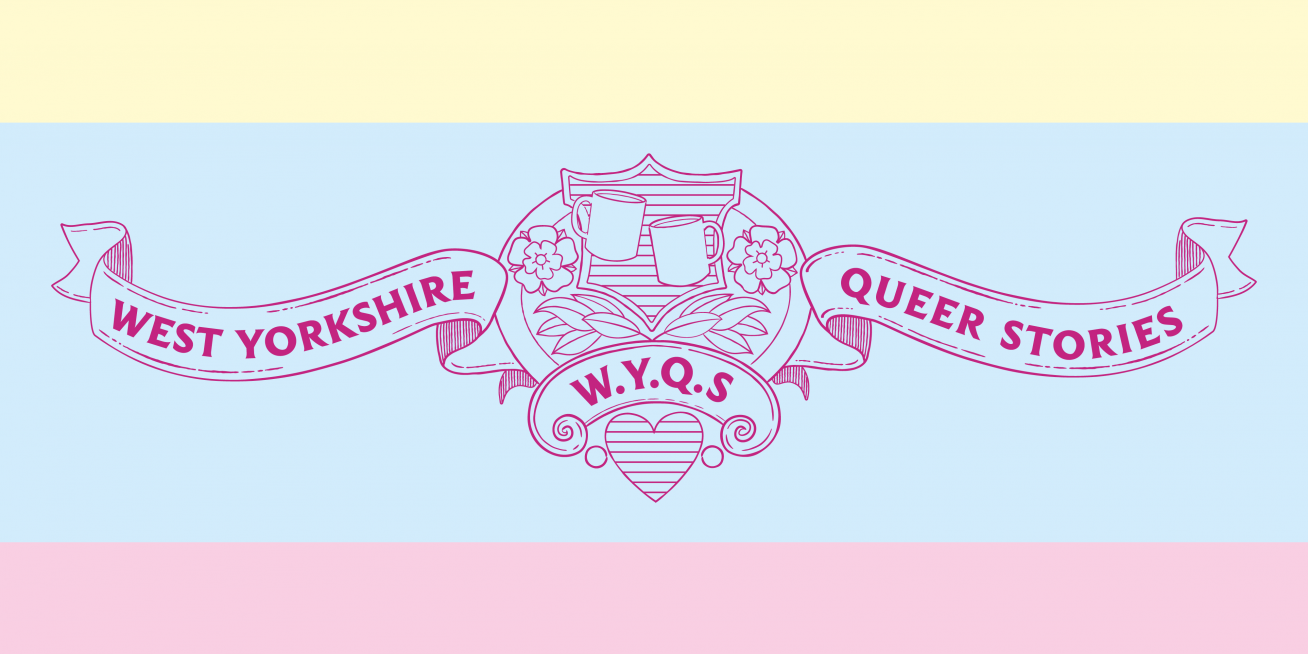'I realised what it was to be a survivor'
JJ talks about the need for accountability in the queer DIY punk scene and how their zine 'I'm a Slut' made them realise that they were a survivor.
The full interview with JJ is held by the West Yorkshire Archive Service. 
TRANSCRIPT
So I'd met this guy that I moved in with through the queer DIY punk scene. I'd seen one of his bands at Stereo when I was living in York. They had a song called Heterosexuality is a Construct, which just blew my mind, coz I'd never heard of anything political in music before, it was just totally new to me. And it was called punk music, but it was like acoustic guitars, and catchy. And that was just – yeah – that just, like, blew my mind. So, I met a guy from the scene online, moved in with him, ended up going to a lot of the shows in London and meeting people through the punk scene.I would say that – so I wrote this zine about – in fact, this is how I realised that I'd been raped, was – I wrote this zine about, it was kind of about slut shaming coz I felt really guilty about how many people I'd had sex with, like really just so much shame. And I know that this comes from the gay scene. Like, in Carlisle, where I'm from, if you sleep around, like, if you're a slut in any way, it's so bad. Everyone wants to, like, meet the guy that'll be the husband, you know. At least ten years ago that was kind of the vibe, like, you know, we wanted to be the same as straight people, we wanted to be monogamous and, like, as good as straight people.
Yeah, when I'd got into the – yeah, so I wasn't in a band but another way to, like, kind of have an impact and have your voice heard is to write zines. Zines are like – they go hand-in-hand with the queer DIY punk subculture. So, I was like: ‘oh, no-one's done this’ – I mean, I've since realised that people have done this exact same thing, but you know, in my head I was like, ‘I'm the first person ever to do this, this is like, so original, I'll write a zine’ and, like, each page, or each couple of pages was about somebody that I'd – it was about every person I'd had sex with. I made a piece of art or, like, wrote a poem or just like a bit of a story. Yeah, as I was writing that, as I was going through the list, like, writing down the names of people, I was, like: ‘oh, did I actually have sex with that guy?’ And I was thinking about it and I was, like, why do I feel so horrible, why do I want to block that out? And it's like, oh, yeah, I've been, I've actually been raped. And it took me, like, a few days to process it. And I ended up writing down this whole, like, long thing about that night. And then I was put that into the zine, just, like, unedited, and everyone that read it, like, you know, felt really sorry for me, and let's have a big cry and... Like, I sold, like, 500 copies of it really quickly, it was really, like, successful, but it was very much from that – I don't know, people said that I didn't portray myself perfectly in it. Like, I did point out when someone had been uncomfortable with me. But yeah, I think it was, so it was through, you know, I kind of became a survivor then coz I realised what it was to be a survivor. I went for some counselling at Survivors UK which was really, really helpful.
In the punk scene I started to get involved in – because people would approach me and like, 'Oh, you've written about rape and sexual abuse, like, you know about it. So, can you help us with the safer spaces policy? Can you help us with this accountability process that's happening?' Coz there's an awful lot of that, I mean, that's constantly going on in the punk scene, because you have a scene where, you know, vulnerable youngish queer people come from all over to these bigger scenes, which have established people, like, mostly men, mostly white men, you know, in popular bands or white men, middle class white men in, who are promoters of gigs who'll like, you know, they'll put the money up to pay the bands, pay the venue, and then they'll make the profit at the end of the night. So you have these people, I think, like, especially promoters, I think, are so dangerous and promoters really need to understand this.
Like, I've been a promoter, and I've used it, I've gone, ‘oh, I really fancy the guy in that band, I wanna put their band on’. And like, so you're paying for access to young, vulnerable people. Yeah, and then you can, like, creep on them at a gig. And I've, you know, I had a conversation with my friend, in London, and we were talking about what it means to be a good promoter, and we were like, 'Oh yeah, Zac is such a good promoter. All his gigs are so great!' and she just said, 'He doesn't put gigs on with guys he fancies’. And that just really – and then I was like: ‘oh shit!’ Every gig I've put on, like I fancy, like, someone in one of the bands and I want to get closer to them. And it is a really, like, manipulative way of using money and power and access to get, you know, to get access to somebody. And I don't know if that's inherent in the punk scene but it does seem like there's people with, like, money and position and privilege and power, like, yeah, can get access to... Yeah, so there's just countless stories in the punk scene of people in, like, feminist, left-leaning, queer bands, assaulting other people, you know, like so much of the like, abuse: sexual abuse, emotional abuse, rape, goes on by people in bands and promoters. And obviously, not those people as well, other people, sort of people – but, the power that that gives you is so intense.
And... yeah, so I was involved in doing accountability stuff, you know, my, the bands I was in would always be calling out sexual abuse and always trying to take a stand against – ‘oh, we won't play with that band coz, you know, they've got an abuser in or, they, you know, sheltered an abuser’, that was a big thing, like people – if someone's got social capital, like if they're popular, if they're in a band, if they're friends with the right people, they become, kind of, invincible, they can't be accused of sexual abuse. Like, my friend was groped. I saw it happen, I literally saw it happen and she wanted to, kind of like, say to the friends of this person, 'They've groped me.' And the whole scene round this person just really, like, closed ranks and just, like, said they we were like muck-raking and shit-stirring and, you know, we were just out to cause trouble and, like, we were angry survivors. And then this guy, like, groped someone within that group a few months later, and then everyone decided to believe it, you know? But because, like, me and my friend weren't in bands, that was the impression that we got at the time because we didn't have that kind of scene cred, it wasn't listened to. Yeah.
And this is just, you know, this is just white people, like, it was a very white scene, the queer punk scene when I was there. Like, when you add in the, the, you know, white supremacy of that scene, you know, white people are always on, like, a pedestal and like they always, like, kind of run the venues, they're the promoters, like, they're the DJs. You know, people of colour get even more abuse from that scene than what I've come through or seen.






